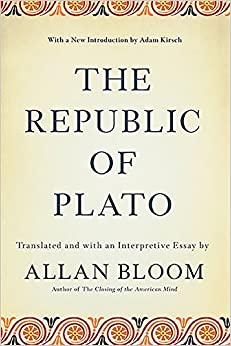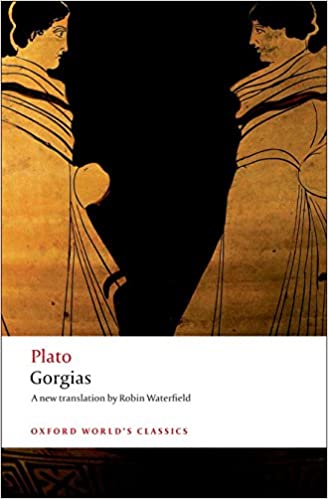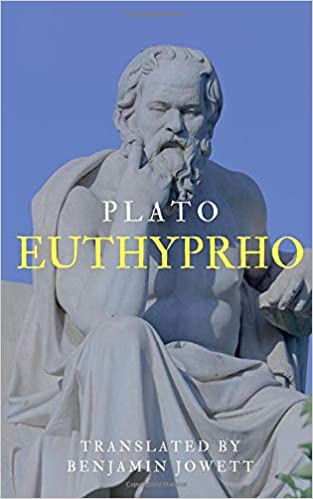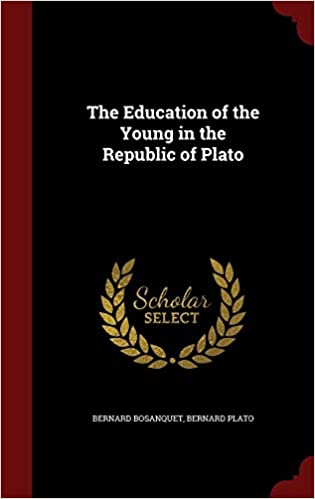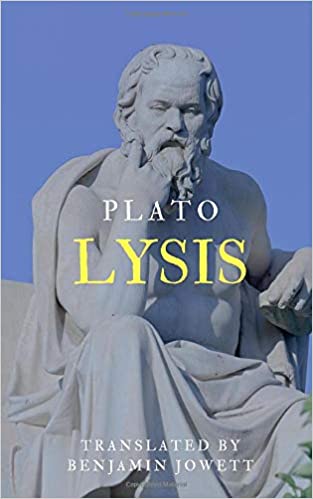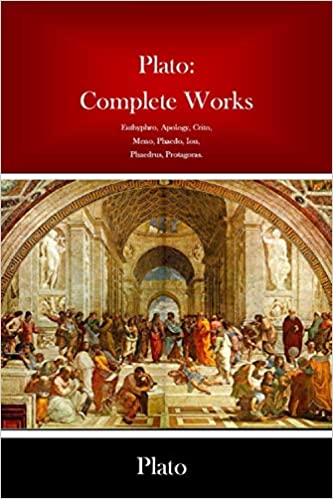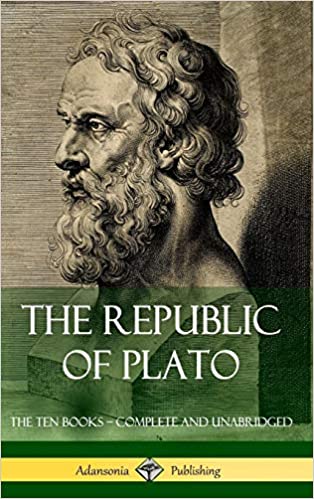The Republic of Plato
The definitive translation of Plato's Republic, the most influential text in the history of Western philosophy
Long regarded as the most accurate rendering of Plato's Republic that has yet been published, this widely acclaimed translation by Allan Bloom was the first to take a strictly literal approach. In addition to the annotated text, there is also a rich and valuable essay -- as well as indices -- which will enable readers to better understand the heart of Plato's intention.
More info →Gorgias
One of Plato's most widely read dialogues, Gorgias treats the temptations of worldly success and the rewards of the genuinely moral life. Appealing to philosophers as a classic text of moral philosophy--and to everyone for its vividness, clarity, and occassional bitter humor--this new
translation is accompanied by explanatory notes and an illuminating and accessible introduction.
Euthyphro
A new, beautifully laid-out edition of the 1892 translation by Benjamin Jowett (1817-1893) of Plato's classic work.
More info →The Education of the Young in the Republic of Plato
This work has been selected by scholars as being culturally important, and is part of the knowledge base of civilization as we know it. This work was reproduced from the original artifact, and remains as true to the original work as possible. Therefore, you will see the original copyright references, library stamps (as most of these works have been housed in our most important libraries around the world), and other notations in the work.
This work is in the public domain in the United States of America, and possibly other nations. Within the United States, you may freely copy and distribute this work, as no entity (individual or corporate) has a copyright on the body of the work.
As a reproduction of a historical artifact, this work may contain missing or blurred pages, poor pictures, errant marks, etc. Scholars believe, and we concur, that this work is important enough to be preserved, reproduced, and made generally available to the public. We appreciate your support of the preservation process, and thank you for being an important part of keeping this knowledge alive and relevant.
More info →Lysis
A new, beautifully laid-out edition of the 1892 translation by Benjamin Jowett (1817-1893) of Plato's classic work.
More info →Plato: Complete Works
Don’t wait any longer and buy now! This exclusive collection has been created especially for you.Plato:Complete WorksEuthyphro,Apology,Crito,Meno,Phaedo,Ion,Phaedrus,Protagoras.Plato in Classical Attic; 428/427 or 424/423 – 348/347 BC) was an Athenian philosopher during the Classical period in Ancient Greece, founder of the Platonist school of thought, and the Academy, the first institution of higher learning in the Western world.He is widely considered the pivotal figure in the history of Ancient Greek and Western philosophy, along with his teacher, Socrates, and his most famous student, Aristotle. Plato has also often been cited as one of the founders of Western religion and spirituality. The so-called Neoplatonism of philosophers like Plotinus and Porphyry influenced Saint Augustine and thus Christianity. Alfred North Whitehead once noted: "the safest general characterization of the European philosophical tradition is that it consists of a series of footnotes to Plato."Plato was the innovator of the written dialogue and dialectic forms in philosophy. Plato is also considered the founder of Western political philosophy. His most famous contribution is the theory of Forms known by pure reason, in which Plato presents a solution to the problem of universals known as Platonism (also ambiguously called either Platonic realism or Platonic idealism). He is also the namesake of Platonic love and the Platonic solids.
More info →The Republic of Plato
The Republic by Plato is a landmark achievement in Ancient Greek philosophy - this edition contains every book, complete in a superb translation by Benjamin Jowett, in hardcover. The Republic is part conversation between friends active in the Athens intellectual community, and part monologue from various participants in the discussion. The narrator and lead character is Socrates, Plato's mentor, who appears in most Platonic dialogues and acts as surrogate to Plato's ideas. Throughout the text the 'Socratic method', whereby Socrates feigns ignorance and questions an adversary to receive insight on a given subject, is amply demonstrated. The discussion begins with an attempt to find a definition for justice, wherein a disagreement between Thrasymachus - who believes justice is what is good for who is strongest at a given place and time - and Socrates, who believes that all members of society should, for the highest benefit of all, conform to just action.
More info →
